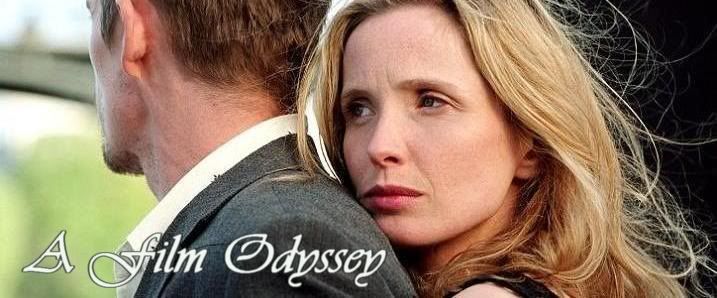Paradise Now (2005)
 Sure to piss off conservatives and nationalists aplenty (if you don't believe me, just skirt on over to the imdb boards), Paradise Now continues the recent trend of politically-minded films in its examination of the social, cultural, religious and personal roots of terrorism: that which motivates its perpetrators to carry out their heinous crimes. The conflict in question is that between the estranged Palestinians and the Jewish state of Israel, and made from the perspective of the former, the film certainly lends its sympathies to those people forced to live on the outskirts of their former civilization. However, one won't find any overt criticisms or justifications of either pro or anti-Israel ideals here, but an examination that concentrates more on the humanistic effects of said conflict than which side is ultimately in the right or wrong.
Sure to piss off conservatives and nationalists aplenty (if you don't believe me, just skirt on over to the imdb boards), Paradise Now continues the recent trend of politically-minded films in its examination of the social, cultural, religious and personal roots of terrorism: that which motivates its perpetrators to carry out their heinous crimes. The conflict in question is that between the estranged Palestinians and the Jewish state of Israel, and made from the perspective of the former, the film certainly lends its sympathies to those people forced to live on the outskirts of their former civilization. However, one won't find any overt criticisms or justifications of either pro or anti-Israel ideals here, but an examination that concentrates more on the humanistic effects of said conflict than which side is ultimately in the right or wrong.Said (Kais Nashef) and Khaled (Ali Suliman) are the potential suicide bombers in question, two long-time best friends living amidst a stateless people removed from their former homeland. The hatred for Israel is strong, and expressed potently: "If we cannot be equal in life, then we can surely be equal in death." When recruited for the anti-Israeli operation, they're reminded of the eternal glory reserved for them for their actions. Even so, both have deep personal investment in their cause. In portraying these two as individuals capable of love, fear, doubt, etc, the film surely qualifies as one that humanizes terrorists, making the important (and oft-overlooked) point that those who commit evil deeds often do so for thwarted reasons, and that evil is rarely a form that exists only in a social vacuum. To examine their causes while still condemning the violent outcomes is a tricky path to walk, and Paradise Now straddles the slippery slopes expertly from start to finish, assuming the audience in question first gets around the tepid nature of the subject matter.
Any intellectual squeamishness brought about by Paradise Now is more than likely caused by viewers who take their ideas and beliefs regarding the material for granted, rather than anything in the film that could actually be considered offensive. With its in-depth look at the process leading up to the terrorist acts regularly made callous by the media, the film asks numerous important questions (most important in my mind: should the sins of one people fall on the shoulders of later generations?), and in becoming an expertly constructed thriller in the process, challenges the audience to examine their own perceptions of violence in a very tangible and intimate manner. Incidentally enough, Paradise Now is an excellent companion piece with Steven Spielberg's superior but equally challenging Munich, a film that poses many of the same ideas and questions, but from an opposing perspective in the same scenario. If these films can teach us anything, it's that there are never two sides to any conflict: there are always far, far more.





